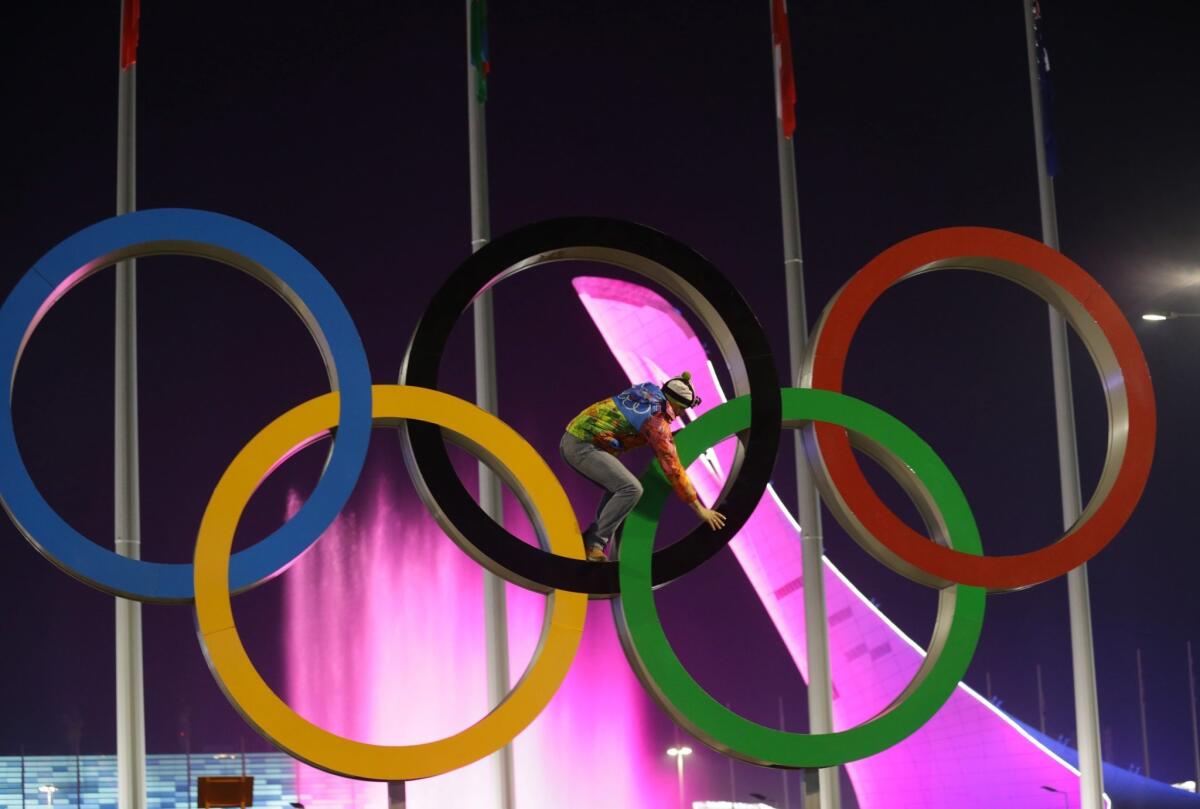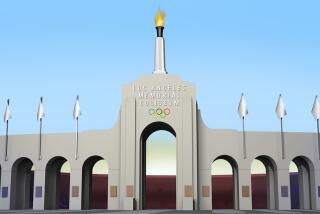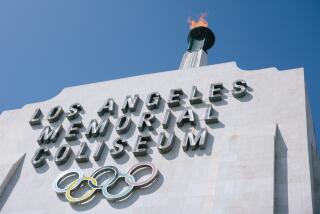Host city warmed to the task, and quickly, for Sochi Olympics

SOCHI, Russia — Thomas Bach, the German who now is International Olympic Committee president, was chairman of the IOC bid city evaluation commission two decades ago when Sochi first became interested in hosting the Winter Olympics.
“I came here and saw an old Stalinist city where whenever you entered a room you were looking at the roof not to be hit by something falling down. It was terrible,” Bach said a few hours before the 22nd Winter Olympics ended Sunday. “Twenty years later, this transformation is amazing.”
The most amazing part is that nearly all the transformation was very recent.
FRAMEWORK: Best images from Sochi
“Two years ago, there was nothing here,” said U.S. Olympic Committee Chairman Larry Probst. “What they pulled off has been incredible.”
What happened here was the miracle on ice, snow, roads and railroads, as the fulfillment of Russian President Vladimir Putin’s ego-driven dream turned a subtropical coastal area and its nearby mountains into an Olympics that overcame doomsaying to become a resounding success.
“Mr. Putin played an important role in the preparation of the Games,” Bach said. “If that would not have been the case, we would sit here in a very different mood.”
Inside the Sochi Olympic bubble, the area within the highly secured “Ring of Steel,” threats of terrorism, ostracism of LGBT athletes, massive weather-related issues and organizational and transportation chaos never materialized, other than the problems with getting some hotels ready in time for media and spectators.
No one would be so naïve as to say these Olympics have made the Caucasus a less volatile region or led to more acceptance — and less harassment — of the “non-traditional relationships” that are the subject of Russia’s 2013 anti-gay legislation. Yet there is no denying that Russia delivered what it promised at the Olympics: stunning sports venues and an atmosphere in which almost no athletes have complained about matters under the Sochi Olympic Organizing Committee’s control.
Yes, the widely viewed picture of a Cossack whipping a member of the punk rock group Pussy Riot is hardly the image of a modern Russia the Sochi Olympics were supposed to convey. The reality is that if you invest $51 billion, you can create an artificial atmosphere in which, to borrow Voltaire’s words and sense of irony, everything was for the best in this best of all possible worlds — in which no part of the Sochi Olympics took place in the city proper of Sochi.
“The reality is we came here and everybody has been welcomed,” said four-time hockey Olympian Julie Chu, U.S. flag bearer at the closing ceremony. “There was a lot of focus on the anti-gay law before we got here but it has been a nonfactor. Everyone has been respected.”
Years must pass before anyone knows whether the investment will turn the Sochi area from decrepit Soviet Bloc summer resort to a Russian destination for tourism and conferences, or if it will appeal to anyone beyond Russia. There is a greater chance that the sparkling new venues will become a widely used winter sports center for Russian athletes.
The one sure thing is the home Games revitalized Russian winter sports, in steady decline since the end of the Soviet Union. After just three gold (an all-time low) and 15 total medals four years ago in Vancouver, even the Russian men’s hockey flop here could not tarnish its Olympic team’s overall success in leading the 88-nation field in both gold (13) and total medals (33).
The IOC always pushes the host country to do well, knowing how much that affects live spectator interest.
A substantial piece of the success came from athletes whom some might see as citizens of convenience. Seven Russian gold medals owed wholly or in part (team or couples events and relays) to athletes born outside the country.
All seven involved athletes who became citizens in the past four years: short-track speedskater Viktor Ahn of South Korea (three gold), snowboarder Vic Wild of the United States (two) and pairs skater Tatiana Volosozhar of Ukraine (two.)
IOC rules say an athlete who has competed for one country in an Olympics, world or regional championship must wait three years to compete for another at the Olympics, unless the former country releases them. The inherent problem is having rich countries essentially buy athletes from poorer ones, but that does not apply here, even if both Ahn and Wild changed competitive nationalities because they said they lacked support in their native counties.
“We are living in a world where migration is a way of life,” Bach said. “For many athletes, there are many good reasons for changing nationality: sometimes love, sometimes a new profession, sometimes a new orientation in life.”
Such changes seem to fit perfectly with the idea that the Sochi Winter Olympics were about transformation, lasting or not.
Twitter@olyphil
More to Read
Get our high school sports newsletter
Prep Rally is devoted to the SoCal high school sports experience, bringing you scores, stories and a behind-the-scenes look at what makes prep sports so popular.
You may occasionally receive promotional content from the Los Angeles Times.






